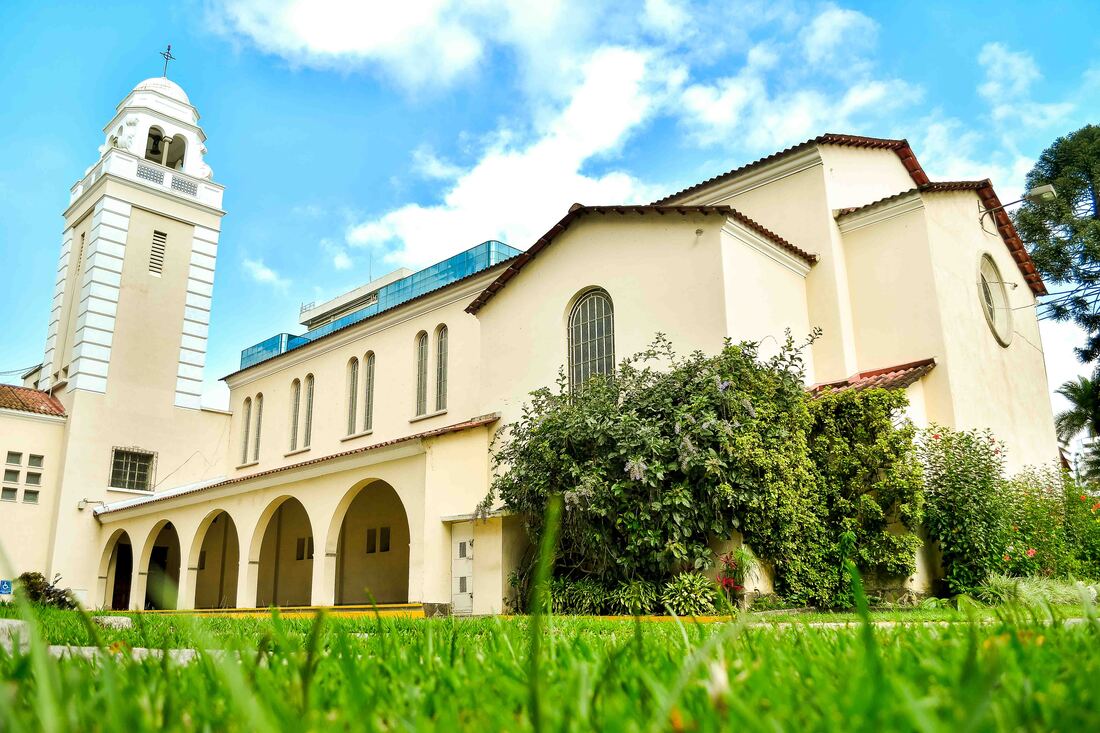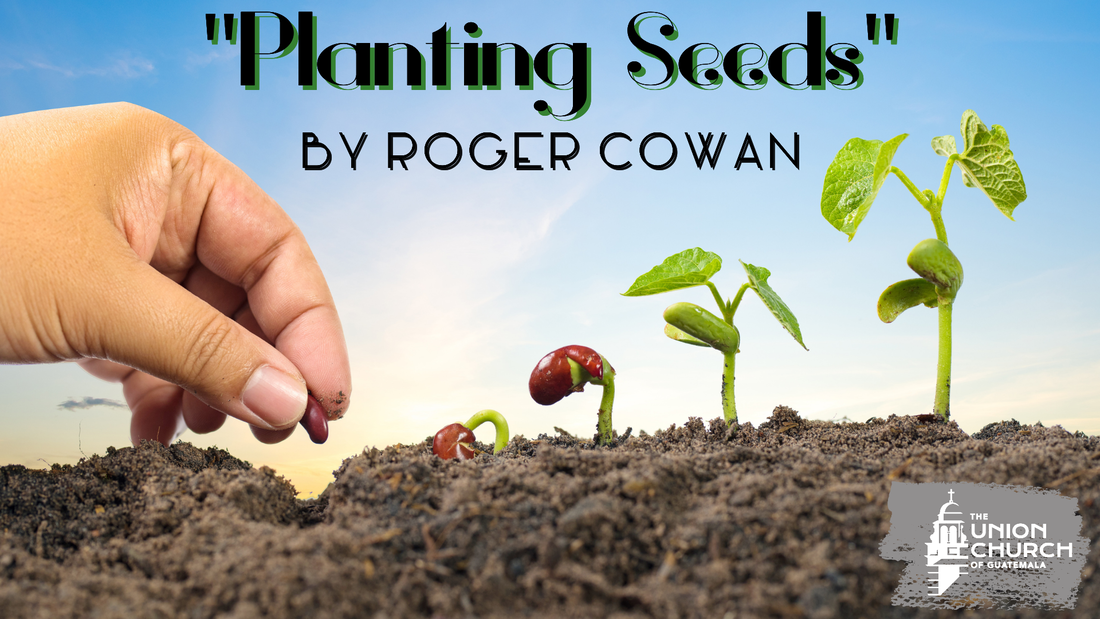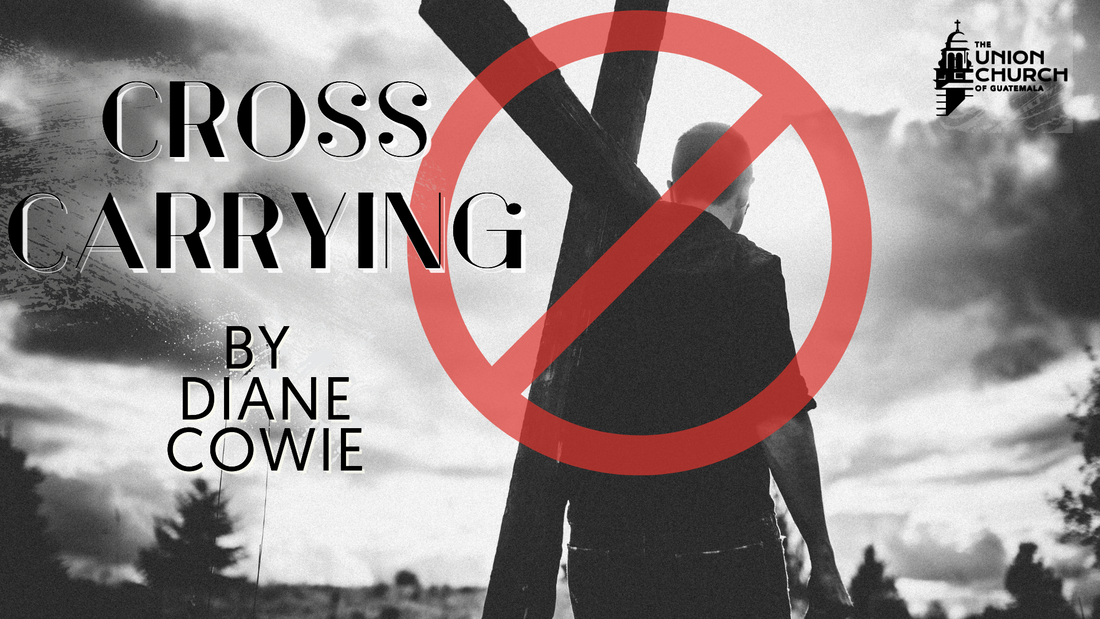|
A small girl, reading a children’s Bible story book, asked a significant question: “How do I tell the difference between Jesus and God? They look alike to me!” Jesus responds to Philip’s question by telling him, “Anyone who has seen me has seen the Father”(John 14:9). That’s the conclusion John wants us to come to when we look at Jesus in his gospel. He wants us to understand who Jesus is. Who is Jesus? No more fundamental question has ever been asked! Who He is has everything to do with His actions, with the message He proclaims, and with our destiny. We must answer the question “Who is Jesus?” For many religious people, Jesus is a good man who taught moral lessons and showed us how to do good to others. For John, who Jesus is forms the basis for everything he tells us about Jesus! John wants us to understand that Jesus is everything we ever hoped for in a Savior – plus a whole lot more! He’s more than we ever bargained for! In the conclusion to his gospel, John explains his purpose for writing: “Jesus did many other miraculous signs in the presence of his disciples, which are not recorded in this book. But these are written that you may believe that Jesus is the Christ, the Son of God, and that by believing you may have life in his name” (John 20:30-31, NIV). His book provides evidence that Jesus is who he claims to be and that we should trust Him. John introduces his theme by telling us who Jesus is and what He came to do (John 1:1-18). He insists that Jesus is God, come to earth in human form to reveal what God is like. All who trust Jesus receive eternal life, forgiveness of sins, and the right to become God’s children. Like Pilate, each of us must decide who Jesus is and how we will respond to Him. Our personal response to Him doesn’t change who He is, but it will change our life. C. S. Lewis rightly observed that there are only three choices: He’s either a liar, a lunatic, or God. If He’s a liar, He should be stoned. If He’s a lunatic, He should be committed. In neither of those two cases does He merit further attention. However, if He’s God, we better pay attention to Him and trust Him! “This is the testimony: God has given us eternal life, and this life is in his Son. Whoever has the Son has life; whoever does not have the Son of God does not have life. I write these things to you who believe in the name of the Son of God so that you may know that you have eternal life.”
1 John 5:11-13
0 Comments
One advantage to teaching is learning. I was showing high school students how to force their minds to slow down and think about a passage of Scriptures. Oh. Sorry! I mean, I was showing them various Bible study methods. Consider John 17. We noticed that our ESV Bibles conveniently provided paragraphs at verses 1, 6, and 20. We observed that the three paragraphs had Jesus praying for himself, his apostles, and future disciples.
Jesus prayed to the Father in the first paragraph. Verse 1, Jesus asked for the Father’s glory so that Jesus might glorify the Father. Verse 2, Jesus had the authority to give life to all flesh. Verse 3 tells us this is “eternal” life. I see Jesus glorified the Father on earth by giving eternal life to men. Called “work,” Jesus was showing his followers the true God who gives eternal life. Here is a “work” that gives life rather than seeks it. As we reread the paragraph, I decided to delay a verse-by-verse study and look more closely at “glory.” It and “glorified” are used five times in as many verses! I highlighted these “glories” in a conspicuous yellow. Then I scanned the rest of the chapter hunting for the “glory” word. But I wanted to be sure that I got all of them. There are plenty of zippy concordances on the Internet. My students now know that if you enter “glor* ” as a search term, you will find every form of the word. I was soon sure I had all of the John 17 “glories”, including verses 10, 22, and 24. After applying some more glowing yellow highlighter, we found glory appears in all three paragraphs. Intriguing! I had guessed that there might be a connection. In paragraph two, Jesus said that he was glorified by his apostles in verse 10. They received the truth and believed that the Father had sent Jesus. Just as the Father sent Jesus into the world to manifest the true God and eternal life, Jesus sent these apostles into the world. They continued the same work that Jesus had begun. They received glory from Jesus. We find our next “glory” in paragraph three with Jesus and future disciples. That included you and me, today. Jesus prayed in verse 24 that we might be with Jesus and see his glory. Our “work” today is proclaiming the gospel of eternal life through Jesus Christ. We do the same work as Jesus and the apostles. We receive the same glory the apostles had with Jesus. All this started in a classroom of high school students. Had we continued an Internet only classroom environment, I doubt any of this would have been realized. My diversion turned out to be a worthwhile distraction. I pray that you consider sharing the good news of eternal life in Jesus Christ. This is the “work” that Jesus began and we continue today. Greg Malczewski Note: Note: Study suggestions:
Scars are evidence of physical traumas. I have many, like the one resulting from a deep cut in my leg by an electric saw as a teenager. All were caused by, or resulted from, accidents.
Resurrection Sunday marks the end of Holy Week, when we remember how Jesus suffered more than we can possibly know. But now he is the glorified risen Lord. His resurrection is not the end of the story! Early Sunday he rose, later appearing to ten of his disciples, there he showed them his hands and feet. (Luke 24:36-40) A week later he again appeared to the ten, and also Thomas. John 20:26-28 records Jesus saying to Thomas. "Put your finger here, and examine my hands. Extend your hand and put it into my side. Do not continue in your unbelief, but believe." (NET) It took no more than to see Jesus’ wounds for Thomas to declare "My Lord and my God!" In showing his scars to him Jesus showed what it cost to forgive and redeem him and us. Approximately sixty years later in Revelation 5:6 John again speaks of Jesus's wounds, though not mentioning his hands, side nor feet. Rather, he sees a visible metaphor of "a Lamb that appeared to have been killed." (NET) The time is coming when we too will see Jesus face to face. I doubt there will be any need for Jesus to chastise us to believe , as he did his disciples. But, will we see him with wounds as the disciples did? Or will eternity be absent of the visible cost to God that the disciples saw? There are only a few passages that make reference to the visible wounds of our risen Lord. Nevertheless, it is reasonable to consider that he will still bear his wounds when we see him. The Gospel writers Luke and John are quite clear that Jesus did retain his wounds after he rose from the dead. Revelation 5:6 does not mention what wounds were visible on the Lamb, but the following context (5:9-12) leaves no doubt that the Lamb that appeared to be killed is Jesus. Maybe his wounds are temporary, just long enough for all to see, possibly at the White Throne. Maybe they will be permanent for all eternity. Either way we will see him just as the disciples did nearly 2,000 years ago. We could even ask, "What does it matter whether or not we see his wounds?" It mattered to Thomas. Perhaps Jesus will be the only being in the eternal kingdom that will have markings of suffering. But as for us, no one will be blind, walk with a limp nor be deaf. Disease, illness or even a mild cold will not exist. We will have resurrected bodies that are without any kind of imperfection. My scars, all by accident will be gone, but the scars Jesus has were not an accident. The body of Jesus may retain the signs of his suffering. His were planned. And that is what matters to me, as they are the essence of what provided me with salvation. What will you do with the nail scarred hands of Jesus? Marty Quigley In Matthew 13:3-8 Jesus gives a parable about a farmer sowing seeds. As the farmer scattered the seeds, some fell on a path and were eaten by birds. Others fell on rocky places. They sprang up quickly but then withered and died because they could not take root. Those that fell among the thorns were choked. But the seeds that fell on good soil “produced a crop a hundred, sixty or thirty times what was sown”.
In his parable, Jesus is really talking about people who hear the Word. Some ignore or reject the message. Others are superficially inspired, but then they fall back into their previous routines and the inspiration dies out without really taking root. Others are ridiculed by their friends and peers; their interest in Jesus is choked out. Only some have sufficient desire and support to overcome the diverse difficulties, let the message transform their lives, grow spiritually and begin to produce an abundance of fruits. I have never been a farmer. My only experience is that since my youth I have grown some vegetable gardens. But from what I know, no serious farmer is going to just throw the seeds around wherever they may land. Planting seeds is an arduous task that requires tilling the soil, taking out the rocks and thorns, digging furrows, carefully planting the seeds, covering them up, nourishing them with fertilizer, watering them consistently and keeping the weeds and insects away. As Christians and as a church, Jesus has assigned us to go out into the world and spread the Gospel. We cannot do this effectively if we just throw out the Word in Sunday sermons within our four walls and hope that all will come to us, hear it and become fervent, convinced believers. This is even more true if we live and work in the desert-like conditions of an atheistic environment. To do our task effectively, we must become serious farmers. To begin with, in order to reach out to nonbelievers and bring them to Jesus, we should spend time preparing and developing a relationship and trust. This represents tilling the soil. We should discard our bad habits and examples and remove temptations. This is like removing the stones and weeds. Then we should carefully plant the seeds. This can be done by personal example, developing our testimony and making some well-timed presentations of the Word adapted to the circumstance. We should try to bring them to church and, if possible, lead them to accept Jesus as their Lord and Savior. We should make the soil as fertile as possible. Then we wait for the Holy Spirit to give life. We cannot do that no matter how hard we try. Our job is to prepare the ground, plant the seed and provide nourishment as it grows. When the seed sprouts up, our hard work is not over. We must cultivate their relationship with Jesus so that it can grow strong roots. We should nourish it with continual attention, wise teaching, love, prayer and example. We should encourage that they continually seek the water of the Holy Spirit and nurture their relationship through prayer and practice. We should try to help remove the weeds by facilitating a healthy environment. When we do this, most seeds will survive and grow. Then we will see the robust crops that we have planted flourish and eventually produce abundant fruits. Subsequent harvest time will be the occasion for great rejoicing and celebration. Then Jesus said to his disciples, "Whoever wants to be my disciple must deny themselves and take up their cross and follow me.” Matt 16:24 (NIV)
“Whoever does not take up their cross and follow me is not worthy of me." Matt 10:38 As Holy Week arrives and crucifixion themes are prevalent, I was thinking about my favorite movie for this time of year, The Robe. Released in 1953, it creates a story of a Roman military leader who witnessed the crucifixion of Jesus and ended up with Christ’s garment, the robe. That event set tribune Marcellus on a course to find out who Jesus really was. He eventually was executed for the pronouncement that Jesus was his King. While The Robe is a complete work of fiction, it has several truths portrayed in it. Unlike many Easter films, it does not focus on the suffering of Jesus on the cross, but rather on what the cost of the cross is to those who follow the Jesus of the cross. Over the years, it has made me think about what Jesus wants from me. Does my encounter with Christ change the way I think and act? What am I willing to give up to follow Jesus? Others may have to ask, like Marcellus, if they can walk away from power and prestige to swear allegiance to Jesus, a politically incorrect leader. One of Jesus’ parables deals with this cost. In Luke 14:28, Jesus uses the analogy of building a tower to tell his disciples that following him requires a deliberate decision. Following Christ will not lead to arriving on the top of the heap, but rather to an upside-down kingdom, one where the last will be first, and the first, last. Success is completely redefined in Christ’s kingdom. Am I willing to live with the consequences of this decision? To one inquirer, Jesus said that foxes have holes, and birds have nests, but the Son of Man has nowhere to lay his head. Jesus was not offering an easier life. What I have to remind myself is that Jesus didn’t lay out a series of dos and don’ts, but He asks for my allegiance to a new way of thinking and acting, and that means I have to leave the world’s standards behind. I can’t walk with one foot in the world and the other in the Kingdom of Heaven. In the closing scene of The Robe, the tribune Marcellus, who has been discounted by the empire as insane, faces the emperor and declares his allegiance to the Jesus he was asked to denounce. The death sentence is pronounced. The emperor now realizes that Marcellus truly believes that he will live in Christ’s kingdom. The ruler reacts like a madman, screeching that Marcellus and his betrothed, while headed to their execution, are really going into another kingdom. It is a dramatic portrayal of the truth I want to keep front and center: I already belong to another kingdom and death does not change that truth. But the daily challenge remains -- to be a faithful cross carrier. Diane Cowie Times were really tough for businesses in Guatemala in the 1980s due to civil unrest. I interviewed over a hundred owners and top managers for USAID to find out what might be the best way that businesses could be supported to keep the economy going and not lose jobs.
In interview after interview, I asked the managers or owners what the five worst problems were that the companies were facing and how might they best be helped. In every case, those interviewed would recite a list of really grave difficulties and complain about them in great detail. My last interview was an exception. It still sticks out in my mind after so many years. When I asked for the list of problems, the owner responded: “Problems? What problems? I don’t have any problems; what I have are fabulous opportunities. My business is expanding rapidly, and my finances are really solid. I am planning to open a new factory in a couple of months.” Then he continued talking. “Up until the end of last year I had horrendous problems. My sales were going down, my employees were not working, I could not collect my receivables and creditors were knocking at my door. I became increasingly depressed, and my health was going downhill fast. I could barely go to the office. Everyone was becoming demoralized. My business was facing bankruptcy.” “One morning, however, I woke up and said to myself, ‘Joe, you don’t have any problems. The problems are in your head. What you have are wonderful opportunities. Take advantage of them and get rid of those bad thoughts.’ That day my bad fortunes reversed, and things have been going marvelously ever since.” Then he said, “I should mention that at the time this occurred, I had just accepted Jesus Christ as my Lord and Savior.” How easy it is to burden ourselves with our problems and let ourselves get dragged down into total anxiety, depression and ineffectiveness. Our concentration on our concerns is greatly aided and abetted by everything and everyone around us. The news media expounds about problems 24 hours a day because that is what their audience wants to hear about. Politicians expound about problems because that is what gets the votes. Then there are the dangers of Covid 19, lack of security and economic difficulties. Our worries become a destructive, self-fulfilling prophecy. As my interviewee indicated, it doesn’t have to be that way. I have found in my journey with Jesus that God does not take away difficulties, but they are no longer problems; they are challenges. When we are with God, the opportunity for growth and victory is always at the end of the tunnel. When we have faith in Jesus and accept him as our Savior, we will always have the best possible solution in an eternal scope because God loves us and has the power to provide what we need. Do not let depressive thoughts, problems and anxieties burden your mind and destroy your effectiveness and health. Paul said it as well as anyone can. “Finally, brothers and sisters, whatever is true, whatever is noble, whatever is right, whatever is pure, whatever is lovely, whatever is admirable—if anything is excellent or praiseworthy—think about such things.” (Philippians 4:8 NIV) Roger Cowan “Many are the woes of the wicked,
but the LORD’s unfailing love surrounds the man who trusts in him.” Psalm 32:10 Some days (or months, or years), it seems that everything goes wrong. An accident, a grave illness, a financial predicament, a heated disagreement, a deep disappointment -- any or all of these could gang up against you, robbing you of peace, joy and contentment. “Many are the woes of the wicked…” It’s so easy to think like “the wicked,” like people who don’t have Christ in them and who are controlled by their weak, sinful natures. “The mind of the sinful man is death…” (Rom 8:6). His thinking is all negative. For him, when everything goes wrong, there’s no way out. It’s going to turn out bad. The accident ruins things, the financial problems can’t be fixed, the disagreement is unresolvable, and the illness is inevitable and might even lead to death. But wait. That’s not who we are. We are not “the wicked.” We have the Spirit of Christ in us if we belong to Christ (Rom 8:9). That makes us “the righteous.” Difficulties are bound to come, but when they do, his Spirit in us says, “Trust me.” “How?” says our flesh and all of our earthly, logical mind. “There is no good way out of this.” “Oh really?” says the Lord. “Is my arm too short to save you, even from this?” (Num. 11:23, italicized words added.) Don’t you know, “…the LORD’s unfailing love surrounds the man who trusts in him.” So often a tough situation doesn’t seem to have a way of working out well. If we trust in our own human efforts to solve the problem, it very well might not turn out well. But we who have the Spirit of Christ in us live by faith, not by sight. If we can take that leap and throw ourselves onto the Lord and trust him to figure it out and to lead us to his solution, we’ll find out that he’s got it. He’s had it all the time. It may be something we would never have thought of. Remember what he did with the Red Sea. Just at the right moment, he opened the way, a most unexpected event. When the crisis comes, we could feel consumed by our woes if we’re not careful, but God’s word encourages us to remember that we are surrounded by his unfailing love if we trust him. If we can take him at his word, leave the negative-thinking probable scenarios behind like “we will probably drown in this Red Sea or else Pharaoh’s army will probably either slaughter or capture us,” then we make room for God to work. This means that we have to get our minds off of those thoughts, take a kind of blind leap out of doubt and into trust - trust in God’s word - then we can be assured that his unfailing love will be waiting for us, and an answer will come. When the crisis comes, when you’re having a Red Sea moment, opt for trust. We love to see children in church. We clutch our hands to our hearts during their Christmas pageant, laugh at their funny answers during a children’s moment in service, and clap along when they sing on Easter Sunday. However, the Bible shows us how truly important children are in the body of Christ, beyond the sweet songs they sing.
The Bible tells us that God created children perfectly (Psalm 139:13-16) and that they are a reward and source of joy (Psalm 127:3-5). We are not to cause children to stumble in any way (Matthew 18:6-7) nor exasperate or be unreasonable with them (Eph. 6:4). We are obligated to teach them while they also have a role as our teachers (Deut. 6:6-7, 11:18-21), as Jesus called us to humility when He told us to be like children (Matt. 18:3-4; 1 Tim. 4:12). To fully understand how Jesus felt about little ones we can look to Mark 10:13-16. Jesus was in the middle of talking to His disciples and the pharisees about the serious topic of divorce, and was interrupted when people, probably mothers brought their children to Him. Like any good parent they wanted them close to the Messiah. The disciples though were annoyed by them; couldn’t they see they were having a serious discussion?! When they showed their annoyance, Jesus became indignant. Jesus couldn’t believe the disciples had already forgotten His teaching of “the greatest of these” just a couple days earlier in which He even brought a child to them to show how they were to welcome children and Him. When these children came to Jesus, they wanted nothing in return, unlike adults who wanted answers, food, healing, blessings, etc. Jesus probably cherished these moments in which He received pure love, joy, and probably some silliness that would give Him strength because in just a few days He would suffer and die on a cross. If you too have enjoyed the affection and joy of a child, you too know it can change everything. Jesus saw children whenever and wherever He could and wanted to make sure the adults got out of their way, and how often we adults do get in the way. We tend to over explain, pity, and minimize the great things kids can do. God not only gives guidance and love to children, but also wisdom and the ability to teach us. So, although the Christmas pageant is cute and fun, God also uses it to grow a mighty faith in the children and in us. Jesus tells us in Matthew 18 that God has a whole team of angels watching over little ones and that He is not willing to let any child perish, just like any of His sheep who wander. May we then have a renewed commitment to care for the children in our lives as the precious gifts and important members of the body of Christ that they truly are. In James 1:1 (ESV) there is a reference to the Jews in “the Dispersion.” It is probable that the book was written when the church was still mostly Jewish. If the dispersion, or scattering, was associated with the activity highlighted by Saul’s hostility in Acts 8:1, then Christians Jews were were being forced out by a great persecution of the church in Jerusalem. These same believers were using the opportunity to proclaim the gospel in various places like Samaria and indirectly in Ethiopia.
Assuming this context, I am intrigued by what James said in 1:2, “Count it all joy, my brothers, when you meet trials of various kinds.” Were these trials involved in the persecution or was the trial the persecution itself? Regardless, James encouraged his readers to look forward. Do not look back at the loss of job, property, and family associations. Look ahead at the opportunity with joy that you will learn valuable personal lessons. It seems that the things we enjoy the most can fatten us in unhealthy ways. It seems that is the way with impatience. It is spiritually unhealthy. Like a diet, prudence or patience is something that can be exercised and learned. However, like a diet, we are often more likely to boast how we follow some 30-day plan for 15 days! Twice as long as last year when the same “plan” was employed. So what happens when there is no food? What happens when there is no peace but only persecution? I went to Ukraine as a teacher in 2000. There was no controlled display of largesse shown by the former Union of Soviet Socialist Republics (USSR) of which Ukraine was a member. Communism in Ukraine was still strongly entrenched after supposedly ending in 1991. The Ukrainians I met shared with me that Ukraine had been the bread basket of their region, much like the plains states of the United States, only 80 years earlier. But Communism of the USSR destroyed both the country’s infrastructure and its will to produce enough to feed itself in just a few decades. Spring ahead to Covid-19 restrictions in early 2020 in the USA, where they experienced an artificial “depression” because of government restrictions. Grocery shelves were emptied for weeks in some places. Without going into the myriad factors involved, there was food. The infrastructure was intact. But people could not get it in their refrigerators. (Kudos to Guatemala where we did not see some of the shortages reported in the USA.) My parents were raised in the real U.S. Depression of 1929, one that lasted for ten years, not ten weeks. My parents' generation vowed that my generation would not suffer that same fate. The generation that follows us has known nothing but presumed material bounty as a right. They seem to feel that they may enshrine whatever pleases them into law. But the history of both Ukraine and the United States should warn us that economic deprivation and very possibly persecution lies somewhere in our future if cultural trends continue. Will we look back or look forward? Will we count it all joy? Will we be willing to accept the protracted lessons of patience that come with world class devastation? I pray that such trials do not come. But I pray even more that we be prepared in spirit to “count it all joy” by the Spirit as we look to the future with hope. Gregory Malczewski 2/26/2021 Currently, there are wrongdoings that clearly go against God’s Word but are socially condoned. Their promotion is heavily financed and strategically organized. They are becoming embedded in public policy and international organization programs. Those who oppose may face ostracism, loss of job, boycotts, exclusion from social media and even violent physical attacks and legal action.
As Christians, how are we supposed to deal with this situation? Are we to speak out against wrongdoers? Are we to declare that what they do is evil? If we do, the consequences will be increasingly severe. Should we therefore just ignore the trends, accept the claim that our view is obsolete and let the evil proliferate as social order collapses? What does God expect of us? In Matthew 7: 1-2 Jesus tells us, “Do not judge, or you too will be judged. For in the same way you judge others, you will be judged, and with the measure you use, it will be measured to you.” (NIV) Is Jesus telling us to look the other way and keep silent? Three precepts give us guidance.
Love means that we must try to bring others to Jesus and save them no matter what their wrongs. “Whoever turns a sinner from the error of his way will save him from death and cover over a multitude of sins” (James 5:19-20 NIV 1984). We therefore have the responsibility to speak out against the sinning which may generate painful and costly reaction. In doing so, we do not judge the wrongdoer. We simply communicate God’s rules, the blessings of obedience and the consequences of disobedience. What people then do is their responsibility. It is not a matter of them against us; it is a matter of them against God. God exists, His rules prevail over earthly laws whether we choose to believe this or not. As his messengers, we must recognize that we are all sinners. The mentioned wrongdoings are not the only sins committed. We will all stand before the judgment seat of God. In Matthew 7:3, Jesus sternly warns us to not be hypocritical in judging others while ignoring our own sins: “Why do you look at the speck of sawdust in your brother’s eye and pay no attention to the plank in your own eye?”. We must first focus on pleasing the Lord and keeping our own lives in order no matter what others may say or do. Finally, in our communications about these sins, we must always be wise. It is far more powerful to testify about the blessings of obeying God’s rules than hypocritically direct accusations against wrongdoers. |
UCG Writers GroupThe writers group exists to provide hope and guidance through God's word. Archives
May 2021
Categories |











 RSS Feed
RSS Feed
